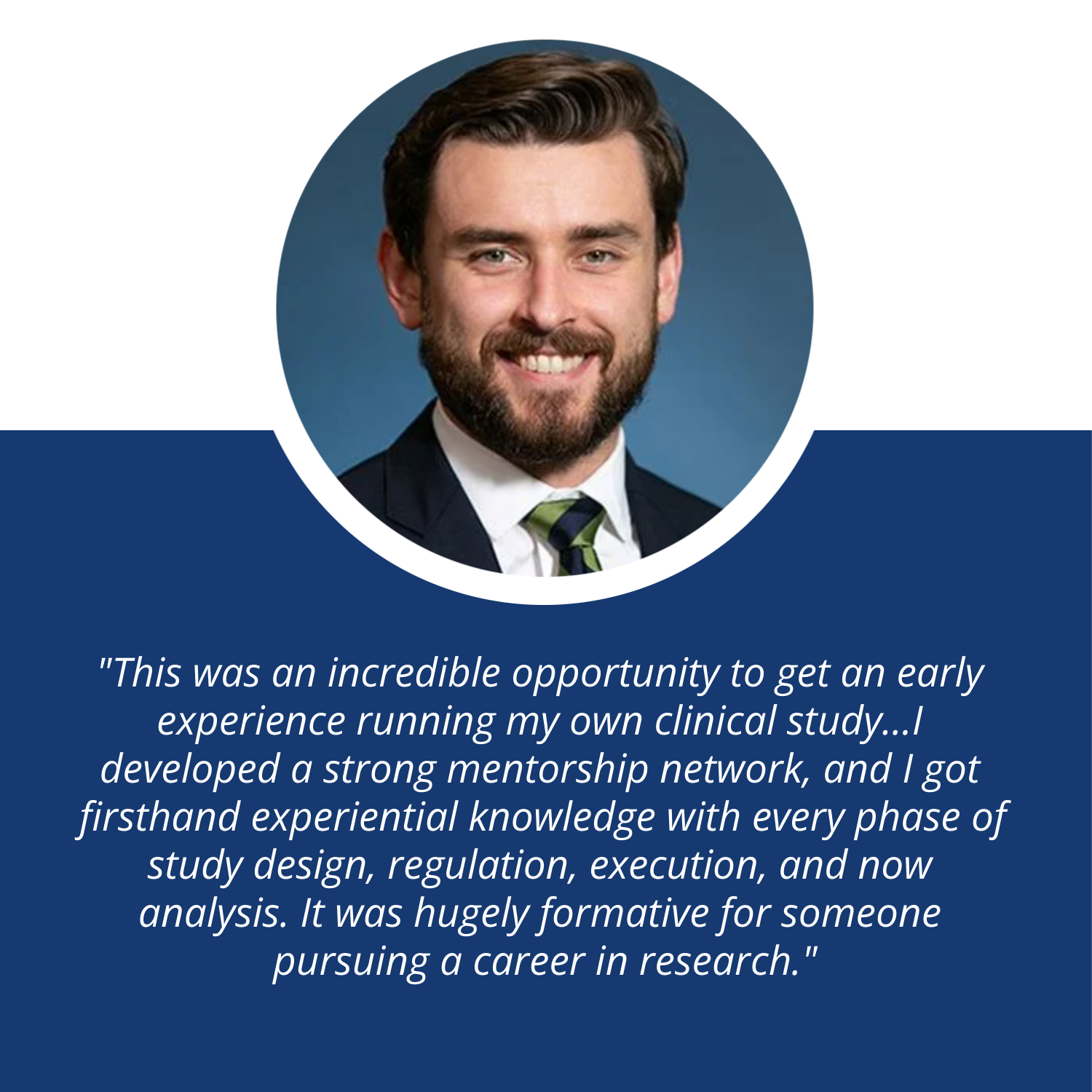Impact Story: Simon Ostrowski, MD

Simon Ostrowski, MD
2024 MTF/SAEMF Toxicology Grant
Project: "Feasibility of Assessing Alcohol Withdrawal Syndrome with a Wearable Biosensor"
About Dr. Ostrowski
Dr. Simon Ostrowski graduated from the University of Massachusetts Medical School. He completed a residency in emergency medicine at the University of Pittsburgh where he served as chief resident and received the resident award for research. Dr. Ostrowski stayed at University of Pittsburgh to complete a fellowship in medical toxicology during which he received his MTF/SAEMF grant to perform a pilot study investigating the use of a wrist-worn wearable sensor to monitor alcohol withdrawal in hospitalized patients. Upon completion of his fellowship, Dr. Ostrowski plans to take a faculty position at the University of Massachusetts Medical School where he hopes to build on the work supported by his MTF/SAEMF grant to improve care delivered to patients experiencing alcohol withdrawal. Outside of work, Dr. Ostrowski enjoys spending time with his wife, two daughters, and corgi.
Q: You were the 2024 recipient of the MTF/SAEMF Toxicology Research Grant. What updates can you share on your project, “Feasibility of Assessing Alcohol Withdrawal Syndrome with a Wearable Biosensor?”
A: My project recently completed its participant enrollment phase on April 1st. We successfully enrolled and collected continuous wearable sensor data from fourteen patients who spanned. With the help of a project mentor, I have identified a computer science collaborator with whom I am working to perform deeper analysis of the wearable data including comparing it to our bedside clinical data such as bedside alcohol withdrawal severity scores.
Q: Was there anything memorable or unexpected that you learned during the grant process and project?
A: My most important learning point was a much greater appreciation for all of the logistical concerns inherent to performing a research study that enrolls human participants and involves a wearable device. I adjusted my budget items halfway through the study to dedicate time to a research assistant for whom I had not initially budgeted money during the initial conception of the project. This has greatly informed how I think about the anticipated challenges and resources required to undertake a clinical study going forward.
Q: How important was this opportunity and what impact has it had on your work and any other research endeavors you have pursued?
A: This was an incredible opportunity to get an early experience running my own clinical study. As stated above, I developed a much greater appreciation for many of the challenges inherent to research. I developed a strong mentorship network, and I got firsthand experiential knowledge with every phase of study design, regulation, execution, and now analysis. It was hugely formative for someone pursuing a career in research.
Q: Do you have any advice for potential applicants or future awardees?
A: Seek mentorship early ideally from researchers with a shared vision and experience in your planned field of research. Don't underestimate the value of your own time and how you can automate or outsource tasks that do not require firsthand touch by the PI. Lastly, be mindful of your long-term career goals and how your planned study fits your overall career narrative, how it will bring you closer to your goals, and how you build on the study depending on its outcome.
